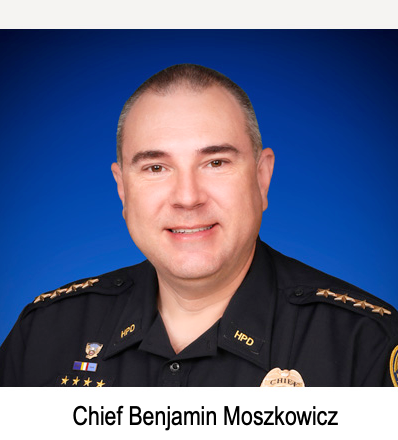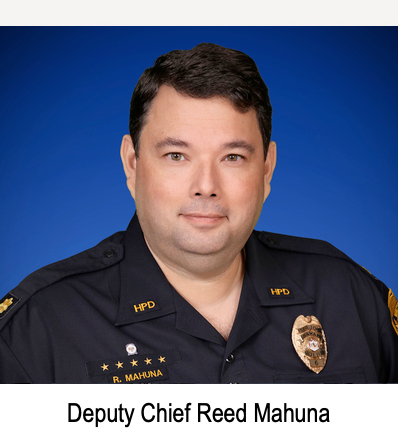The Hawaiʻi Police Department’s goal of combating crime and providing efficient service depends to a large degree on the assistance and understanding it receives from the general public. To promote public understanding, the department maintains several programs to help the community and increase its awareness of police operations.
Requests for information on any of these programs may be obtained by calling the Community Relations Section at (808) 961-2264 in Hilo.
Police Week
In observance of fallen officers who made the ultimate sacrifice by giving their lives in the line of duty, Police Week is celebrated in conjunction with the observance of National Police Week during the month of May. It was first instituted through a U.S. Senate joint resolution in the 87th congress and signed by the late President John F. Kennedy on June 21, 1961. During the week, there are “Open Houses” at all police stations on the Big Island with special tours of the police station.
Station Tours
Station tours are conducted from 8 a.m. to 3 p.m. by qualified personnel. Civic groups, students, parents and out-of-town visitors are always welcome. Activities and functions of each division are explained to all visitors.
Speakers Bureau
The Police Department receives many requests for speakers on police-related subjects from community groups, scouts and schools. All requests are acted on immediately, and personnel who specialize in the subject matter are assigned to speak. Requests for speakers are coordinated by the Community Relations Section, and assignments are made by the division commanders.
Preventative Programs
The department also conducts several preventative programs at schools and in the community. They include:
Community Helpers
A police officer will visit a requesting school, both public and private, covering pre-school nurseries and kindergarten through the third grade to teach youngsters the role of the police officer and his duties. Most important, the officer will try to make the youngsters understand that the police officer is their friend. A session typically features an explanation of the equipment an officer carries, and a lecture on traffic safety, getting along with society and respecting your parents. A question-and-answer period follows with the finale highlighted by issuing the kids a “Your Friend the Police Officer” coloring books, along with a gold “Junior Police Officer” badge.
Community Safety
The Police Department provides information and presentations on several crime prevention and safety topics, such as Personal Safety, Robbery Readiness, Safety for Senior Citizens, Theft and Scams and Workplace Violence. These presentations are available to individuals, community groups, schools and businesses.
Crime Stoppers/Student Crime Stoppers
The Police Department receives and investigates tips on illegal activity in our community and schools through the local Crime Stoppers programs. Well more than 1,000 criminal cases ranging from homicides to burglaries have been successfully solved on the Big Island through the anonymous tip lines. The Student Crime Stoppers program allows students from participating schools to report anonymously illegal activity on or off campus as well as school violations. The program has proven successful in addressing problems such as drug and alcohol use, violence and property damage in our schools. Participating schools include: Waiakea High School, Pahoa Middle and High School, Ka’u Middle and High School, Konawaena, Hawaiʻi Academy of Arts and Science and Hilo High School.
Drug Awareness
A drug awareness program with displays and lectures by experienced Vice Section officers is another service available to the community. The primary objective of this program is to eliminate or reduce the use of drugs among young people.
Keiki ID
The department also issues an identification card with emergency information about a child. A photograph of the child is taken and laminated onto the card. Parents are given the Keiki ID card.
Bicycle Safety
Each year before school is over, usually during the period of April to June, the department makes a concerted effort to talk at as many schools as possible on the important subject of bicycle safety. It’s an effort to prepare the youngsters for the hazards which they may encounter during summer vacation.







